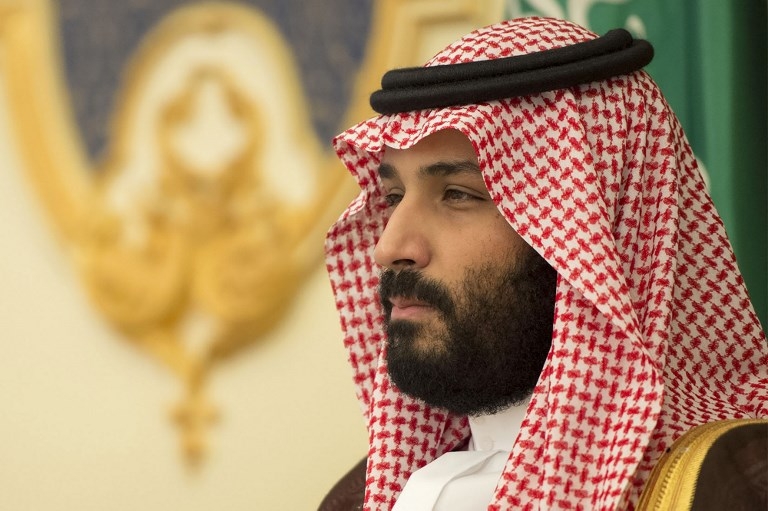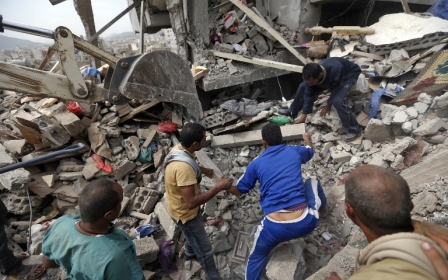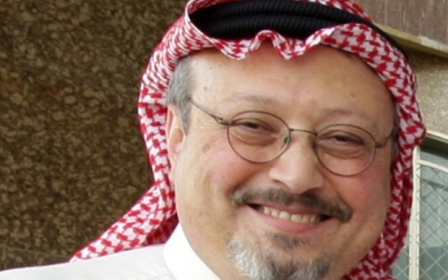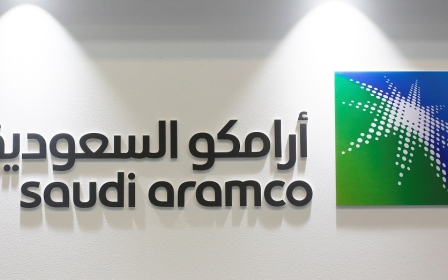The blink and the back step: Saudi Arabia's troubled vision

First came the blink. Then came the big step back as Mohammed bin Salman, the Saudi crown prince, signalled on 7 September that the goalposts had shifted for the National Transformation Plan (NTP), a key element of his bold bid to dramatically alter the economic and social realities of the kingdom he now, for all practical purposes, runs.
The NTP, released in December 2015, was subsequently folded into Vision 2030, the government's blueprint for radical change announced to great fanfare last April - and offering significant international exposure for the young prince in a hurry.
Investors are reading the step back as a sign that MbS is encountering growing opposition from the religious establishment, the business elite and members of the ruling family
The 32-year-old minister in charge of just about everything is the favoured son of an elderly and doting King Salman. His portfolio includes the presidency of the Council for Economic and Development Affairs, minister of defence, first deputy prime minister and, effectively, the boss of the kingdom’s crown jewel, Saudi Aramco. He is also his father’s gatekeeper: anyone who wants to speak to the king must go through the son.
He showed his clout in the June 2017 palace coup that saw the removal of his only serious challenger to the throne, then interior minister and crown prince Mohammed bin Nayef. The ease with which bin Nayef was removed from running arguably the most powerful ministry in the kingdom and, at the same time, bounced out of the role of crown prince was a useful measure of just how much power MbS, as he is known, has accumulated.
But with all that power at his disposal, Mohammed bin Salman has stumbled badly on three fronts: the military, the diplomatic and the economic.
Two battles with no end
The now more-than-two-year-old war MbS launched in Yemen, which he no doubt believed would provide him with a quick win and burnish his credentials as a warrior prince, continues to brutally batter the Arab world’s poorest state. With more than 10,000 killed, 600,000 hit by cholera and millions more facing starvation, the time has surely come for him to call a unilateral halt to the bombing war.
But the bombs keep falling with no end in sight and the Saudis seem hell bent on continuing a war they have not been able to win, despite their massive firepower advantage.
This June, working in tandem with the UAE’s putative leader Mohammed bin Zayed, he opened a war on the diplomatic front accusing fellow Gulf Cooperation Council member Qatar of being a source of terrorism funding. Pulling Bahrain and Egypt into the fray, the Emiratis and the Saudis launched a land, air and sea blockade convinced that the Qataris would crumble quickly.
They haven’t, nor have any countries of significance joined in the diplomatic and economic boycott currently being waged with near ludicrous ineptitude by the quartet. Now, more than three months on, the feud threatens to fracture the GCC while Iran, the Saudis’ great regional foe, looks on with barely disguised glee. Friends and allies look on aghast.
Cutting the bloat
On the economic front things are not going swimmingly either. MbS’s bold strategy to reshape the economy by invigorating the private sector, empowering women and slashing public sector spending under the umbrella of Vision 2030 first stumbled in April when the government announced it was rolling back a decision taken just six months previously to slash benefits to civil servants and military personnel. In some instances, the cuts amounted to 40 percent of take home pay.
The foxes of Saudi bureaucracy, it could well be said, have returned to the hen house
The backlash on social media was strong, particularly among young Saudis who make up 70 percent of the population. The rollback was the moment that MbS blinked. And now, after the blink comes the big step backwards as government ministries scramble to prepare a revised version of the NTP, one that shifts important deadlines by five years or more and removes others altogether.
Analysts will tell you it was inevitable. Many of the goals, such as freeing Saudi Arabia from oil dependency by 2020 and creating over a million new private sector jobs within the same timeframe, were simply not grounded in reality.
Saudi Arabia is a command economy fuelled by hydrocarbon revenues with a huge ruling family that expects to continue to live the high life while ordinary citizens feel the pinch as oil prices continue to hover at $50 a barrel.
Efforts to energise the private sector have had only modest returns and key needs such as building affordable homes and creating meaningful jobs have not been met, putting strains on the crown prince’s popularity with young Saudis.
And foreign companies and investors are reading the step back as a sign that MbS is encountering growing opposition from the religious establishment, the business elite and fellow members of the ruling family, to say nothing of a civil service bureaucracy used to inflated salaries and easy hours in the hugely bloated public sector.
Drifting odds
More tellingly, MbS, having initially sidelined senior ministries, has now returned many of the same ministries to the fold and has tasked them with writing a revised document, scheduled for release at the end of October. Among the ministries are those connected to the privatisation plan, financial reform and the delivery of affordable housing. The foxes of Saudi bureaucracy, it could well be said, have returned to the hen house.
Gone are the days of a careful balancing act between branches of the ruling family. Gone, too, is the consensual approach to sharing out wealth and power
There is concern too that this grand plan, like so many of its predecessors, will be further watered down, that even the partial privatisation of Saudi Aramco and the huge cash flow that it will generate will not be enough to create a sustainable economic model, let alone come near achieving the lofty goals of Vision 2030.
No Saudi since the days of his grandfather Ibn Saud, the founder of the kingdom, has amassed the power that MbS has at his fingertips. But great power carries high risks. Gone are the days of a careful balancing act between branches of the ruling family. Gone, too, is the consensual approach to sharing out wealth and power. It is a seismic shift and a dangerous game to play.
Mohammed bin Salman is gambling that he can see off his enemies and carry young Saudis with him, but the odds of him doing so are lengthening. His enemies, it is safe to say, are gathering in the shadows.
- Bill Law is a Middle East analyst and a specialist in Gulf affairs. He tweets @billlaw49.
The views expressed in this article belong to the author and do not necessarily reflect the editorial policy of Middle East Eye.
Photo: Saudi Crown Prince Mohammed bin Salman with a Yemeni delagation in Jeddah in August 2017 (AFP/Saudi Royal Palace)
New MEE newsletter: Jerusalem Dispatch
Sign up to get the latest insights and analysis on Israel-Palestine, alongside Turkey Unpacked and other MEE newsletters
Middle East Eye delivers independent and unrivalled coverage and analysis of the Middle East, North Africa and beyond. To learn more about republishing this content and the associated fees, please fill out this form. More about MEE can be found here.





